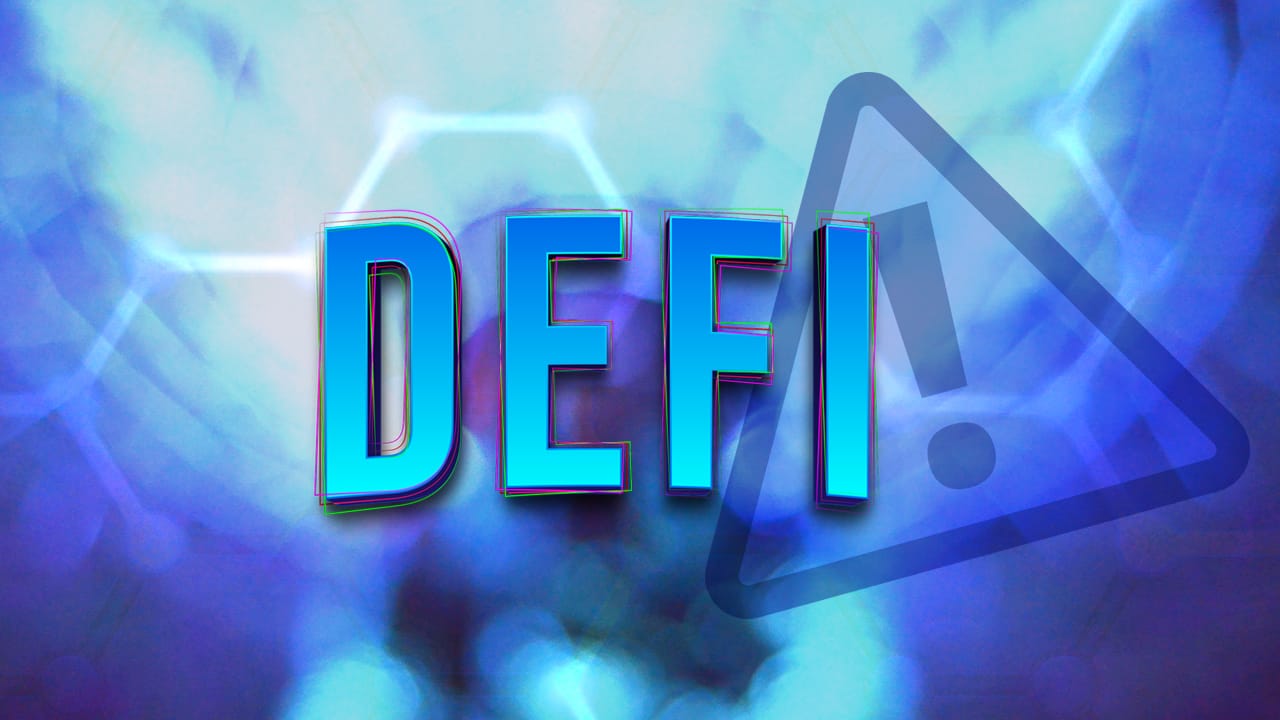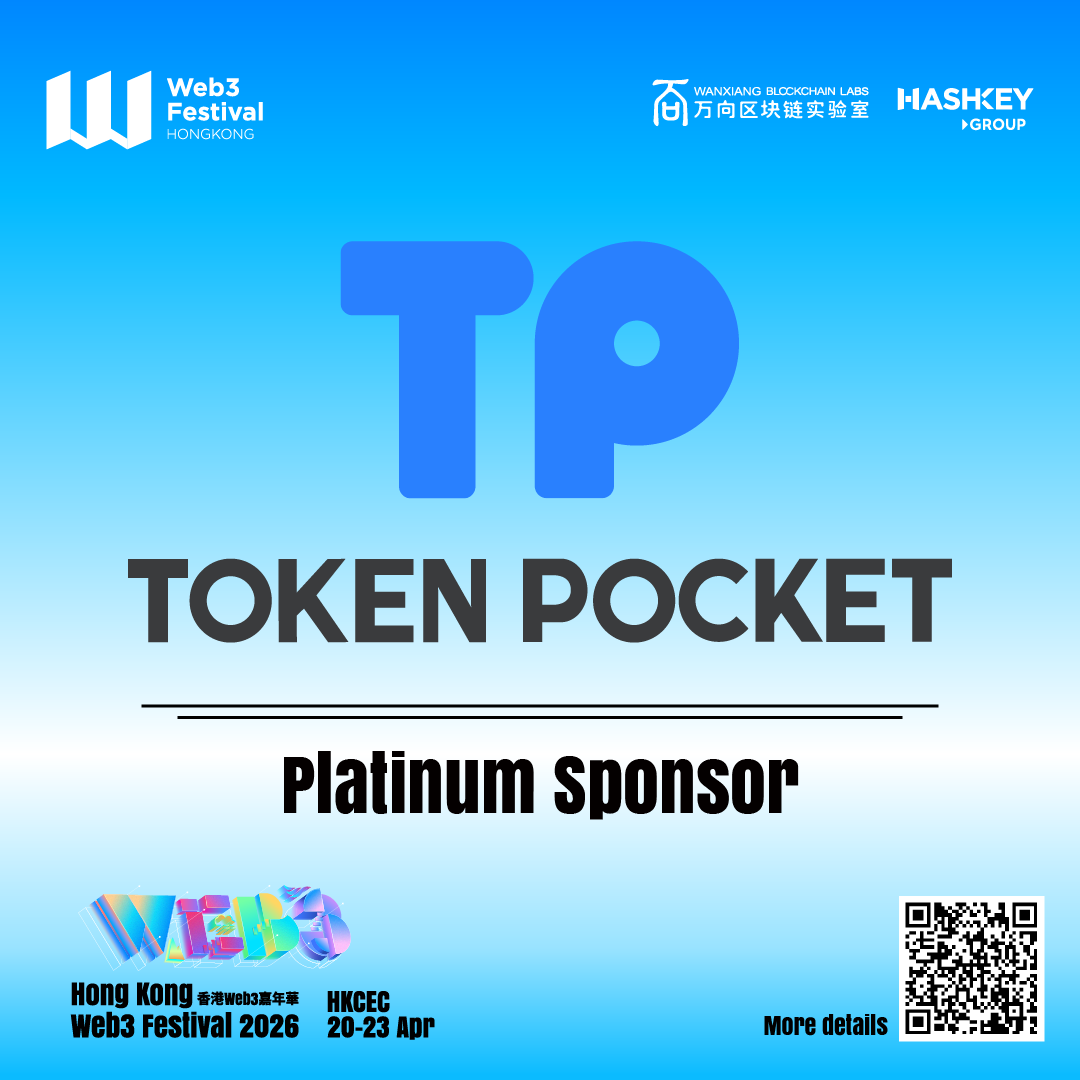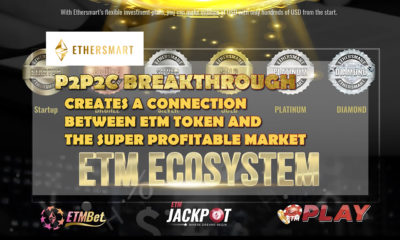Press Release
Defi Scams – Most Common Scams in the DeFi Space

In the world of Defi, scams are unfortunately all too common. This article looks at popular Defi scams, how they operate, and how to protect yourself.
We’ll also provide tips on what to do if somebody scammed you and how to report a scammer. Finally, we’ll discuss the implications of DeFi scamming and present examples of successful prosecutions.
What Are DeFi Scams, and How Do They Work?
Decentralized Finance (DeFi) is a term that has gained enormous popularity over the years. DeFi is the shift from centralized financial systems to peer-to-peer finance enabled by decentralized technologies built on the Ethereum blockchain.
DeFi promises a more equal and accessible financial system, but it’s still largely unregulated. Lack of regulation has made DeFi a haven for fraudsters, who have plundered millions from unwary consumers.
We can summarize a typical scam in three steps:
- The scammer creates a fake project or impersonates an existing one.
- The scammer promotes the fake project or impersonates the existing one to generate interest and attract users.
- The scammer exits the scam, leaving users with worthless tokens or no access to their funds.
The Most Common Types of DeFi Scams
There are many types of scams in the DeFi sector, but some are more common than others. Let us look into a few of this industry’s most frequent criminal schemes.
Phishing scams
DeFi is not immune to phishing scams. Due to the intricacy of several DeFi protocols, fraudsters have managed to successful target newcomers.
The most common type of phishing scam in the DeFi space is impersonation. This is when a scammer creates a fake website or social media account that looks identical to a legitimate one.
They will then use this fake account to try and trick users into sending them money or personal information. Another common type of DeFi scam is the Ponzi scheme. Instead of investing the money, the fraudster pays out previous investors.
This scam is widespread in the DeFi space, as there are often high returns from investing in new protocols.
Scams Involving Fake or Stolen Identities
One of the most common scams in the Defi space is identity theft. Someone uses your personal information to register a new account or access an existing one.
They may also use your information to apply for credit cards or loans or to make purchases in your name.
Another way that identity theft can occur is when someone steals your private key or recovery phrase. This gives them access to your accounts and allows them to make changes or send funds without your permission.
Pump and Dump Schemes
If you are not new to the field of financial investments, then you must have probably heard about pump-and-dump schemes.
A group conspires to acquire a cryptocurrency at the same moment to drive up its price. Afterward, it sells it when at the peak price after promising a group of traders that this would not happen.
Pumpers make a profit, whereas dumpers lose. Sadly, it’s as simple as that. Pump and dump schemes are not new and have been around for quite some time. They are so common that the U.S. Securities and Exchange Commission has issued an investor alert about them.
Forgery and Counterfeiting of Digital Assets
Unfortunately, not every project in the DeFi world is legitimate and original. Forgery and counterfeiting are rampant, with scammers selling digital assets that don’t exist or aim to look like something else.
This scam generally happens when someone creates a website or social media account that looks identical to a legitimate project. However, the page has slight changes that allow the scammer to redirect funds to their wallet.
For example, a scam on Twitter happened when someone created a fake version of the popular Defi project Uniswap. The account looked identical to the official one, except that it had one letter changed in the URL.
This small change allowed the scammer to siphon over $150,000 worth of Ether (ETH) from unsuspecting users.
Fraudulent Activities Associated with Initial Coin Offerings (ICOs)
Last but not least, ICOs tend to have an association with fraudulent activities. In an ICO, a company offers digital tokens for investors’ fiat currency or cryptocurrency. However, many ICOs are scams, with companies using the funds raised to enrich themselves instead of developing the project.
A severe fraud associated with ICOs is when the team behind the project absconds with the funds. This type of fraud is, technically, an “exit scam.”
In an exit scam, the team often creates a fake project website and whitepaper, promising huge returns to investors. They will then raise money from unsuspecting investors and make off the cash, leaving investors high and dry.
How to Protect Yourself from DeFi Scams
At this point, you will probably be wondering how you can protect yourself from falling into one of these scams. Below are a few tips.
- Do your research: This is the most important thing you can do. When you are looking at a project, make sure to read up on it as much as possible. Look at the team’s backgrounds and the project’s roadmap, and try to find as much information as possible.
- Don’t invest more than you can afford to lose: This general rule applies to all investments, but it is essential in the DeFi space. These projects are still very new, and there is a lot of uncertainty surrounding them. As such, you should only invest an amount you are comfortable losing.
- Beware of social media scams: Social media is a great way to stay up-to-date on all the latest news in the crypto world. However, it is also an excellent way for scammers to reach many people. Be careful about the links you click on and the information you trust.
- Look for projects with KYC and audit certifications: If a project has undergone a KYC (know-your-customer) or audit process, it passed a vetting procedure. This adds an extra security layer and gives you peace of mind. SolidProof, PeckShield, Hacken, and Solidity Finance are popular companies taking care of this aspect.
What to Do If Somebody Scammed You
If you think someone scammed you, there are a few things you can do:
- First, try to resolve the issue with the person or company you believe scammed you. This may be difficult, but it’s always worth a shot.
- Contact your local consumer protection agency if you can’t resolve the issue.
- You can also file a complaint with the Federal Trade Commission (FTC) or the Better Business Bureau (BBB).
- Finally, you can contact a lawyer to discuss your legal options.
How to Report a DeFi Scam
If you think you’ve been the victim of a DeFi scam, consider taking a few actions to report the criminals.
First, report it to the project team or protocol developers if possible. They may help you recover your lost funds or take action to prevent others from being scammed in the future.
You can also report the scam to a crypto exchange or wallet provider. Obviously, this is applicable if you used any of these channels to access the DeFi project. Many of them have fraud departments that can help you get your money back or prevent future scams.
Finally, you can report the scam to law enforcement. This is often a long shot, but it’s worth doing if you’ve lost a significant amount of money.
The Consequences of DeFi Scamming
Besides losing your money, scamming in the DeFi sector has several adverse effects on the industry. For instance, it undermines the trust in decentralized finance protocols and gives scammers free marketing.
When a user falls into a scam, it’s not only the investor who loses money. The whole DeFi industry is negatively affected by it.
Scammed users will likely be more cautious in the future, leading to a decrease in trust in decentralized finance protocols. Using popular DeFi protocols and services, they can reach a larger audience and scam more people. In addition, it gives scammers free marketing.
Examples of Successful DeFi Scam Prosecutions
In recent years, there have been several successful DeFi scam prosecutions. Here are some notable examples:
In 2019, the US Securities and Exchange Commission (SEC) charged a company called EtherDelta with operating an unregistered securities exchange. The Ethereum blockchain-based decentralized exchange EtherDelta enables users to swap ETH and ERC20 tokens.
The SEC alleged that EtherDelta’s founder had illegally profited from the exchange by operating it as an unregistered broker-dealer. Coburn agreed to pay $300,000 in penalties and disgorge nearly $13 million in ill-gotten gains.
In 2020, the CFTC accused My Big Coin Pay, Inc. of running a fraudulent virtual currency operation.
My Big Coin Pay promised investors they could use virtual currency to buy and sell goods and services. However, the CFTC alleged that the company used investor funds to pay for personal expenses, including travel and luxury goods.
The CFTC ordered My Big Coin Pay to pay $6 million and disgorge nearly $360,000 in ill-gotten gains.
These are just a few examples of the many successful DeFi scam prosecutions that have taken place in recent years. These cases show that law enforcement is taking action against DeFi scams. If you have been a victim of a DeFi scam, you should contact a lawyer to discuss your legal options.
The Importance of Verifying Senders and Receivers Before Transferring Funds
One last thing you should consider before transferring funds is verifying both the sender’s and receiver’s addresses. Too many people have fallen victim to scams because they didn’t confirm the address before sending funds.
If you’re not sure how to verify an address, here are a few tips:
- Check if the address is valid on Ethereum’s leading network. You can do this by pasting the address into a block explorer like EtherScan.
- Make sure the address has a balance. If it doesn’t, that could be a sign that it’s not a valid address.
- If you’re sending funds to an exchange, check if the exchange has a page on EtherScan. If it does, compare the addresses to make sure they match.
These are just a few of the many ways you can verify an address. By taking these extra steps, you can help protect yourself from scams.
Bottom Line – Protecting Yourself from DeFi Scams Takes Education and Awareness
The best way to protect yourself from DeFi scams is to educate yourself and stay aware of the latest scams. Understanding how these scams work can help protect yourself and your hard-earned money.
Contact a lawyer to discuss your options if you think you may have been a victim of a DeFi scam. There were case
Press Release
PlatON Announced as Secondary Exhibition Sponsor for Hong Kong Web3 Festival 2026


Hong Kong, 10th February 2026, The Hong Kong Web3 Festival 2026 just got another major sponsor on board. PlatON is coming in as a Secondary Exhibition Sponsor, and honestly, it’s a pretty good fit given what they’re trying to accomplish in the financial infrastructure space.
So what exactly is PlatON? It’s an open financial infrastructure platform that the LatticeX Foundation put together. The really cool part is this thing called TOPOS that sits on top of it – basically, it’s designed to help banks and payment companies actually make sense of blockchain technology and use it for real-world payments and clearing. We’ve all heard the talk about blockchain revolutionizing finance, but PlatON is actually trying to make that happen by building something traditional financial institutions can actually work with.
They’ve got the technical chops for it too – we’re talking high-frequency transaction processing, quick settlements, smart contracts that can handle multiple types of assets. This isn’t some experimental project; it’s built to handle serious stuff like cross-border payments, institutional settlements, and managing digital assets in a way that keeps regulators happy. If you want to dive deeper into what they’re doing, head over to https://platon.network.
Now, the festival itself has become a pretty big deal since it kicked off back in April 2023. Wanxiang Blockchain Labs and HashKey Group run it together, with W3ME handling the organization, and it’s turned into the go-to event for anyone serious about Web3 in Asia. It’s where people actually show up to talk about what’s working, what’s not, and where all of this is heading.
Mark your calendars for April 20-23 if you’re planning to go – it’ll be at the Hong Kong Convention and Exhibition Centre. The past three years have been pretty wild: 350+ exhibitors, over 1,200 speakers, 100,000 people coming through the doors, and more than 400 side events happening around the main conference. That’s a lot of activity packed into a few days.
This year they’re lining up around 300 speakers to cover pretty much every corner of Web3 and crypto. But here’s what’s really interesting – they’ve already got 500+ executives and decision-makers from traditional finance and regular businesses signed up. That’s not your typical crypto crowd. It means you’ve got old-school finance people genuinely trying to understand this space, sitting down with crypto natives, and actually having productive conversations. Those are the kinds of interactions that lead to real progress.
The fact that it’s in Hong Kong matters more than you might think. The city has always been this weird and wonderful mix of East and West, traditional finance and cutting-edge tech. It’s got one foot in Mainland China’s massive market and the other in the global financial system. That positioning means the festival can pull in people and ideas from everywhere, giving you access to perspectives and opportunities that just don’t exist at Western crypto conferences or purely Asian tech events.
Whether you’re already neck-deep in DeFi or you’re just trying to figure out what all the fuss is about, this has become the event that actually matters in the Asian crypto calendar.
Check out all the info at https://www.web3festival.org/hongkong2026/#/en.
Thinking about becoming a partner? Here’s where you start: https://tally.so/r/w5YEbP.
Press Release
TokenPocket Announced as Platinum Sponsor for Hong Kong Web3 Festival 2026


The Hong Kong Web3 Festival 2026 has announced TokenPocket as a Platinum Sponsor, further strengthening the event’s position as Asia’s premier gathering for blockchain innovation and decentralized technology. This strategic partnership brings together one of the industry’s leading multi-chain wallet providers with the region’s most influential crypto conference.
TokenPocket, a pioneering decentralized wallet platform, joins the festival as a key partner, bringing its expertise in blockchain infrastructure and stablecoin payment solutions to an event that has become essential for anyone serious about Web3’s future in Asia and beyond. The collaboration underscores the accelerating momentum behind Web3 adoption and reinforces Hong Kong’s strategic importance as a global hub for digital asset innovation and regulatory clarity.
About TokenPocket
TokenPocket stands as one of the cryptocurrency industry’s leading decentralized wallets, purpose-built for seamless multi-chain integration and efficient stablecoin transactions. The platform offers comprehensive accessibility through mobile applications, browser extensions, and the KeyPal hardware wallet, ensuring users can manage digital assets securely across multiple devices and environments with consistent functionality.
The wallet delivers enterprise-grade security protections combined with innovative features specifically designed to enhance user experience and reduce common pain points in digital asset management. Among its most notable capabilities is zero-gas-fee transfer functionality across multiple blockchain networks, significantly reducing transaction costs and eliminating friction that has traditionally hindered widespread crypto adoption. This powerful combination of robust security architecture and user-centric features positions TokenPocket as a truly decentralized, multichain wallet solution suitable for both cryptocurrency newcomers and experienced traders seeking advanced functionality.
TokenPocket’s participation as a Platinum Sponsor demonstrates the company’s commitment to supporting ecosystem development and fostering connections between infrastructure providers, developers, and institutional players across the Web3 landscape.
For more information about TokenPocket, visit https://tp.xyz/
About Hong Kong Web3 Festival 2026
The Hong Kong Web3 Festival, co-hosted by Wanxiang Blockchain Labs and HashKey Group and organized by W3ME, has firmly established itself as Asia’s premiere cryptocurrency and blockchain gathering since its launch in April 2023. The annual event serves as a critical convergence point for the world’s leading innovators, thought leaders, policymakers, and decision-makers in the Web3 and crypto ecosystems to explore emerging trends, regulatory developments, and technological breakthroughs shaping the industry’s future.
The 2026 edition will take place from April 20 to 23 at the Hong Kong Convention and Exhibition Centre, continuing the festival’s tradition of bringing together the brightest minds in decentralized technology. Previous editions have demonstrated remarkable scale and influence, collectively attracting over 350 exhibitors, more than 1,200 speakers, and a cumulative audience exceeding 100,000 visitors from around the world. The festivals have also catalyzed over 400 diverse side events, creating unparalleled networking and collaboration opportunities across the entire Web3 landscape.
This year’s festival is projected to feature up to 300 speakers representing every facet of Web3 and cryptocurrency, from blockchain infrastructure and DeFi protocols to NFTs, metaverse applications, gaming, and enterprise adoption strategies. Significantly, the event has already attracted registrations from over 500 executives and corporate decision-makers from traditional finance sectors and real economy industries, establishing the conference as a high-level platform for substantive dialogue, knowledge transfer, and strategic partnerships between Web3 innovators and traditional business leaders.
Hong Kong Web3 Festival leverages the city’s distinctive advantages as a global financial center and innovation powerhouse. This strategic positioning enables the event to bridge Mainland China’s vast market potential with worldwide Web3 developments, creating unique opportunities for cross-border knowledge exchange and business development. By bringing together premier resources, talent, and capital from across the globe, the festival provides attendees with exclusive access to cutting-edge Web3 updates, market insights, and networking opportunities unavailable elsewhere in the Asia-Pacific region.
For comprehensive event details, visit: https://www.web3festival.org/hongkong2026/#/en
Organizations interested in partnership opportunities can apply at: https://tally.so/r/w5YEbP
Press Release
Sui Foundation Announced as Exclusive Dinner Sponsor for Hong Kong Web3 Festival 2026


Hong Kong Web3 Festival 2026 is pleased to announce Sui Foundation as an Exclusive Dinner Sponsor, marking a significant partnership that underscores the growing collaboration between leading blockchain innovators and Asia’s premier crypto gathering.
Sui Foundation is an independent organization dedicated to growing and cultivating long-term value in the SUI ecosystem. The foundation supports developers, creators, and enterprises building on Sui, a next-generation blockchain platform designed for scalability and user-friendly experiences. Through strategic initiatives, grants, and community programs, Sui Foundation plays a vital role in advancing Web3 innovation globally. Their sponsorship of this year’s exclusive dinner event will provide attendees with unique networking opportunities alongside industry leaders and blockchain pioneers. For more information, please visit: https://www.sui.io/
The Hong Kong Web3 Festival (“Web3 Festival”), co-hosted by Wanxiang Blockchain Labs and HashKey Group and organized by W3ME, is Asia’s premiere crypto gathering that has been annually held since April 2023. It convenes the world’s smartest minds in the Web3 and crypto space to discuss the latest trends, policies, and technological breakthroughs shaping the future of decentralized technologies.
This year’s Hong Kong Web3 Festival will take place from April 20 to 23 at the Hong Kong Convention and Exhibition Centre, spanning four days of intensive programming, exhibitions, and networking events. The previous three editions of Web3 Festival brought together over 350 exhibitors and more than 1,200 speakers for in-depth discussions, attracted a cumulative total of 100,000 visitors, and saw over 400 diverse side events. These impressive numbers reflect the festival’s position as a must-attend event for anyone serious about the Web3 industry.
Web3 Festival 2026 will feature up to 300 speakers representing all aspects of Web3 and crypto on its stages, including blockchain developers, cryptocurrency innovators, DeFi pioneers, NFT creators, metaverse architects, and institutional investors. The event has also attracted registrations from over 500 executives and corporate decision-makers in traditional finance and real economies, demonstrating the increasing mainstream adoption of blockchain technology. This diverse attendance enables the conference to serve as a high-level platform for in-depth dialogues and high-value connections between emerging tech leaders and established financial institutions.
As Asia’s premier crypto event, Web3 Festival leverages Hong Kong’s unique position as a global financial center and innovation powerhouse, bridging the vast market potential of Mainland China with worldwide Web3 advancements. This strategic positioning is particularly significant as Hong Kong continues to establish itself as a leading Web3 hub with progressive regulatory frameworks and strong government support for digital asset innovation. The unique positioning enables the event to bring together the best resources from across the globe, offering attendees first-hand Web3 updates, networking opportunities, and insights into emerging market trends that will shape the industry’s future.
The partnership with Sui Foundation further elevates the festival’s reputation as the meeting point for blockchain innovation and enterprise adoption in the Asia-Pacific region.
Get all the details here: https://www.web3festival.org/hongkong2026/#/en
Be our partner: https://tally.so/r/w5YEbP
-

 Crypto4 years ago
Crypto4 years agoCardalonia Aiming To Become The Biggest Metaverse Project On Cardano
-

 Press Release5 years ago
Press Release5 years agoP2P2C BREAKTHROUGH CREATES A CONNECTION BETWEEN ETM TOKEN AND THE SUPER PROFITABLE MARKET
-

 Blockchain5 years ago
Blockchain5 years agoWOM Protocol partners with CoinPayments, the world’s largest cryptocurrency payments processor
-

 Press Release5 years ago
Press Release5 years agoETHERSMART DEVELOPER’S VISION MADE FINTECH COMPANY BECOME DUBAI’S TOP DIGITAL BANK
-

 Press Release5 years ago
Press Release5 years agoProject Quantum – Decentralised AAA Gaming
-

 Blockchain5 years ago
Blockchain5 years agoWOM Protocol Recommended by Premier Crypto Analyst as only full featured project for August
-

 Press Release5 years ago
Press Release5 years agoETHERSMART DEVELOPER’S VISION MADE FINTECH COMPANY BECOME DUBAI’S TOP DIGITAL BANK
-

 Blockchain6 years ago
Blockchain6 years ago1.5 Times More Bitcoin is purchased by Grayscale Than Daily Mined Coins






